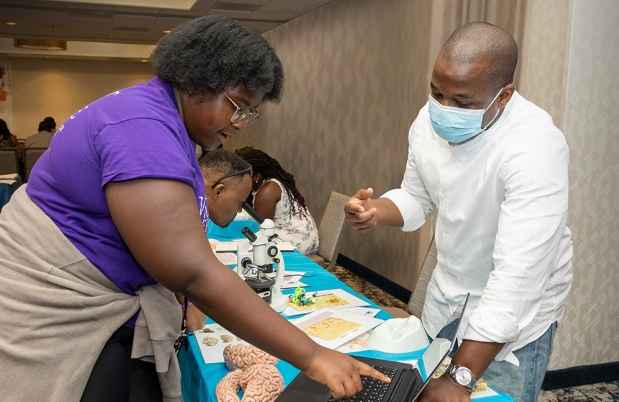On Friday, September 14, 2018, Jeff Fink, a volunteer in McLean’s Deconstructing Stigma mental health awareness campaign and an animal therapy advocate, will be on our Belmont campus to deliver a special lecture on how animals can contribute to mental health care, “Go Fetch Wellness/Deconstructing Stigma: Looking at the Mental Health Benefits of Animals.”
Fink will be accompanied by Earl, his five-year-old golden retriever service animal; Beth L. Murphy, MD, PhD, co-medical director of the McLean Hospital LEADER (Law Enforcement, Active Duty, Emergency Responder) Outpatient Clinic’s Mood, Anxiety, Stress, and Trauma Track and a facilitator of on-campus pet visitation at McLean; and Stephanie A. Maddox, PhD, an assistant neuroscientist in the Neurobiology of Fear Laboratory, who is researching the effectiveness of animal therapies, including equine therapy with women who have experienced trauma.

Earl is a certified therapy animal with Canine Good Citizen credentials issued through the American Kennel Club. He also serves as the chief canine officer for Go Fetch Wellness, an organization that Fink launched to promote the mission of “incorporating animals into a whole person approach to mental health treatment.”
Fink will share his story of how he lived with treatment-resistant depression for many years before Earl entered his life.
“Nothing seemed effective enough to stabilize my inner world, and I understood my salvation would have to come from something outside of myself,” said Fink. “I had no confidence that I would find that ‘something’ or really any purpose in life other than getting through each day. Then one day I picked up my 8-week-old golden retriever, Earl. His instantaneous affection, unconditional love, acceptance, non-judgment, and even his snarls (which are his way of smiling), grounded me in a way I had never experienced before.”
“With much careful and patient training, Earl became my own mental health service animal. We were, and are, inseparable. Earl brought smiles to just about everyone who met him, stimulated conversations for me with strangers, and helped ease the chronic anxiety that had been part of my daily existence for as long as I could remember. Earl helped reconnect me with the world and, in turn, the world with me.”
While McLean does not yet have a formal pet therapy program, pet visitation is a popular offering at the hospital. Murphy is one of many proponents of pet visitation at McLean, but she acknowledges that the current body of pet therapy research is not robust.
“While there are demonstrable short-term benefits, we need more quality research that addresses potential long-term benefits,” said Murphy. “However, in my estimation, the short-term benefits alone, which include breakthroughs in treatment, are reason enough to have a pet therapy program.”
Media Requests
Journalist or member of the media? We are available 24/7 for media requests.



